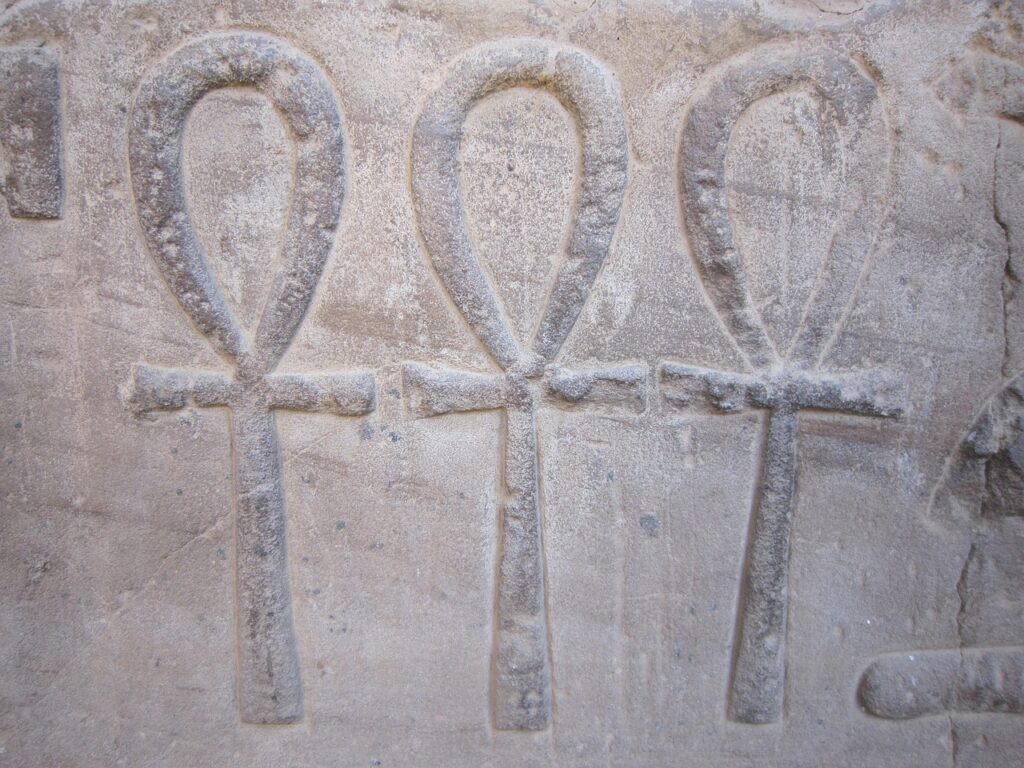? Water

The ankh or key of life is an ancient Egyptian hieroglyphic symbol used in Egyptian art and writing to represent the word for “life” and, by extension, as a symbol of life itself.
The ankh has a cross shape but with a teardrop-shaped loop in place of a vertical upper bar. The origins of the symbol are not known, although many hypotheses have been proposed. It was used in writing as a triliteral sign, representing a sequence of three consonants, ?-n-?. This sequence was found in several Egyptian words, including the words meaning “mirror”, “floral bouquet”, and “life”. In art the symbol often appeared as a physical object representing either life or substances such as air or water that are related to it. It was especially commonly held in the hands of ancient Egyptian deities, or being given by them to the pharaoh, to represent their power to sustain life and to revive human souls in the afterlife.
The ankh was one of the most common decorative motifs in ancient Egypt and was also used decoratively by neighbouring cultures. Coptic Christians adapted it into the crux ansata, a shape with a circular rather than oval loop, and used it as a variant of the Christian cross. The ankh came into widespread use in Western culture in the 1960s, and it is often used as a symbol of African cultural identity, Neopagan belief systems, and the goth subculture.
Author
Barthwo (pixabay.com)
Courtesy Needpix.com
